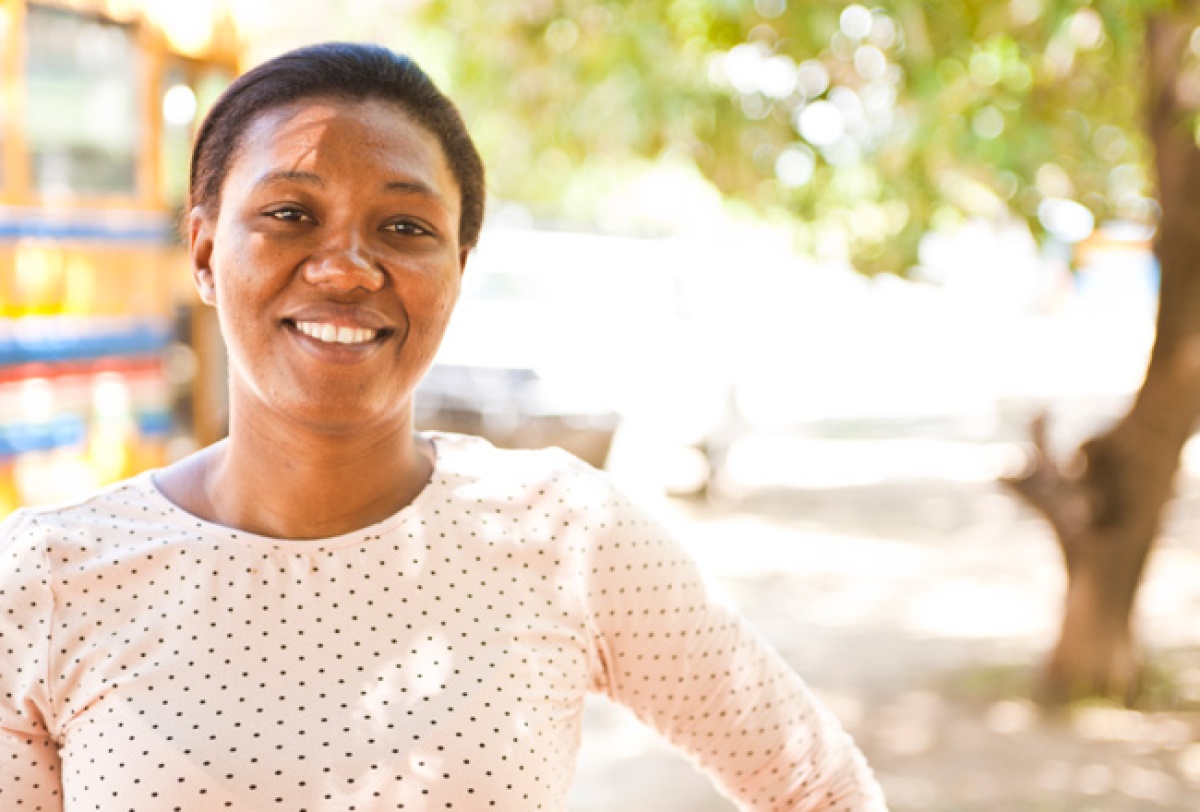World Food Day: A Q&A With PIH's Haiti Nutrition Coordinator
Posted on Oct 15, 2013

Annually, more than 3 million child deaths around the world are linked to undernutrition. Put another way, nearly half of all children who die each year die because they don’t have access to enough food or the right food.
Partners In Health sees the far-reaching effects of malnutrition at many of our sites. Without food, a child’s physical and cognitive growth is stunted. Without food, taking daily medications can be a painful chore. Without food, it’s hard to muster the energy to get through a school day or workday.
Recently, we took an in-depth look at the newly opened Nourimanba Production Facility and how it’s helping provide lifesaving treatment to malnourished children in Haiti’s Central Plateau and Artibonite regions. In the course of reporting the story, we interviewed Marie Landy Zamor, the nutrition coordinator at Zanmi Lasante, PIH’s Haitian sister organization.
Zamor, 28, began working for PIH/ZL in 2008. Over the past five years she has cultivated an intimate knowledge of malnutrition in rural Haiti. To mark World Food Day, we asked Zamor to share insights and reflections on her work.
As nutrition coordinator, what does an average day entail?
I provide technical supervision for all activities under the malnutrition program. I work very closely with nurses. The malnutrition programs at our clinics are run by nurses—they educate patients and families, give out Nourimanba, weigh patients, and take care of all the activities related to screening and treating malnutrition.
I travel among ZL’s sites often to make sure we’re all following national protocols and that everything is running smoothly. If there are many patients, I’ll help with the clinical work.
And there is a lot of reporting to do to help with monitoring programs and patients.
I believe in a preferential option for the poor and PIH/ZL’s mission of giving services to those who can’t access them. In the nutrition program, I see this firsthand every day.
You have a daunting job. What motivates you?
I believe in a preferential option for the poor and PIH/ZL’s mission of giving services to those who can’t access them. In the nutrition program, I see this firsthand every day.
Every person has the right to eat food. Unfortunately, Haiti is such a poor country that many people don’t have the means. If you have the opportunity to go out into the countryside—to the houses people live in, the conditions they live in every day—it would leave a lot of bad memories for you.
But because of ZL’s level of service, I get to see results. By monitoring patients and accompanying them, we’re able to track their progress.
What’s the biggest challenge?
The biggest challenge is adherence. Kids come each week and from very far away. We do weekly appointments to closely monitor kids because they are at high risk of developing complications, so we need to provide constant supervision. Some families walk three hours to reach the clinic. They have to walk because they don’t have transportation.
There is a relationship between how far people live from the clinic and how sick they are. Those who are far don’t have access to health care and there is the issue of access to food. If you live near a market town you have better access to food.
That’s where adherence becomes a challenge and that is why we are rooted in the communities we serve.
Can you talk about the importance of educating patients and families about nutrition?
Some parents don’t understand what malnutrition is. It’s important to educate the parents so that they come to the clinic and aren’t embarrassed. Showing the family how to prepare different meals for their children with food that is accessible helps. We provide this information in the clinic when children are screened for malnutrition. And then the nutrition team makes a monthly home visit to continuing working with the family.
We also have a monthly meeting for parents to discuss nutrition and other issues that relate, such as hygiene, how to treat water, and how to wash fruit and vegetables. The immune system is weaker in malnourished kids, so this is all very important for families to know.
How do you foresee the Nourimanba Production Facility improving ZL’s ability to treat malnutrition?
The most important thing is having enough Nourimanba for the patients in our catchment area, and the facility will help achieve this. The facility also represents a better quality product. Many tests are done to make sure we’re delivering the best treatment possible to our patients.
I want to say that treatment is important, of course. But so is prevention. Economic conditions, social conditions, schools, agriculture—they all need to improve before you can properly solve the problem.

